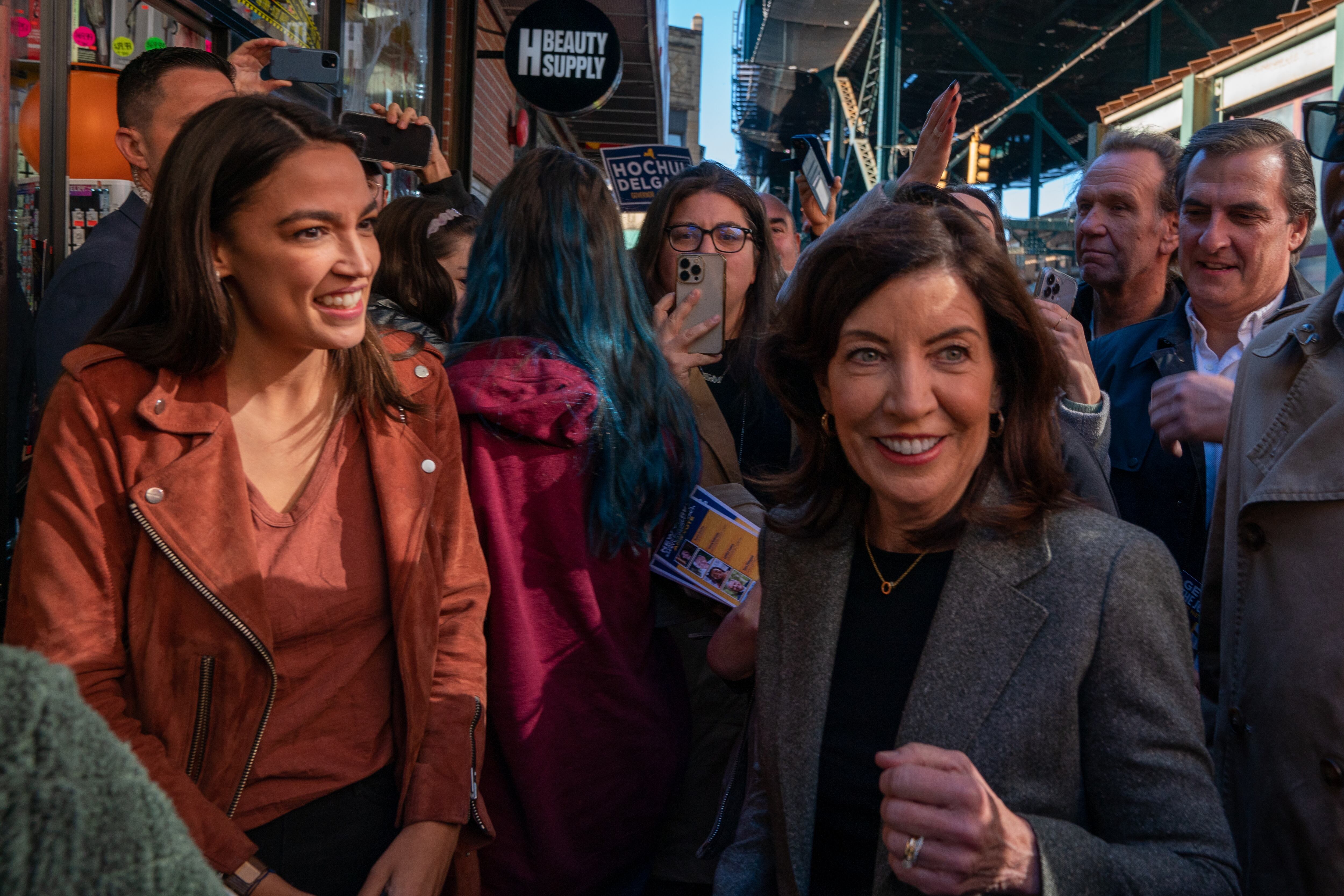Democratic Gov. Kathy Hochul, who led the state as students returned to schools full time after COVID-related closures, won New York’s governor’s race on Tuesday, according to the Associated Press.
In a race that grew tighter in recent weeks, Hochul was declared the winner after getting 53% of the vote against Republican Rep. Lee Zeldin, of Long Island, according to preliminary state Board of Elections results with 84% of election districts reporting. She is the first female elected governor in the state.
Hochul, who spent nearly a decade as the state’s lieutenant governor, took New York’s top office 14 months ago following former Gov. Andrew Cuomo’s stunning resignation amid a sexual harassment scandal. In her first year in office, she oversaw significant developments in education, including boosting funding for schools and signing a bill that aims to limit class sizes in New York City schools.
Hochul did not make education policy a centerpiece of her campaign. Still, she won endorsements and big campaign contributions from New York’s powerful teachers unions — one of which hadn’t endorsed a candidate in 16 years. Educator unions felt like they had an ally in office after she embraced policies they pushed, including the class size bill and initiatives to tackle teacher shortages.
At the same time, she also won some support from pro-charter school political groups, and in a debate last month, she said she supported lifting the state’s cap on how many charter schools can open.
Here’s how Hochul’s continued governorship could impact New York City’s schools:
School funding, teacher shortages and college
Under Cuomo, the state increased school funding, but it wasn’t enough for many school advocates. They criticized the former governor for failing to fully fund the state’s Foundation Aid formula, which is designed to send more money to school districts with higher shares of students with high needs, such as those living in poverty.
When Hochul assumed office, she settled a 2014 lawsuit by committing to fully fund the formula. (Despite that, funding remains a hot topic in New York City, where three-quarters of schools saw less money this fall as their enrollment was projected to drop.)
Under the plan Hochul agreed to — phasing in the boosted funding over three years — schools would receive 100% of the money they’re owed by next year. It is expected to amount to roughly $4 billion additional dollars to districts across the state.
Looking forward, some advocates and policymakers are already calling for updating the formula itself, which has remained the same since its inception in 2007. Hochul has not yet said whether she supports overhauling the formula. Updating it could result in calls for even more money for schools.
Hochul may also continue to focus on postsecondary education. She announced last year a goal to get two-thirds of New Yorkers to graduate with a college degree by 2030. To help meet this goal, she expanded college tuition assistance to part-time students in her first year in office.
To address the state’s looming teacher shortage, she expanded some alternative teacher certification programs. She also temporarily waived an income cap for retirees who want to return to the classroom. The situation could soon get dire as state teaching programs have seen enrollment drop by more than half since 2009, and about a third of current teachers are projected to retire in the next five years, according to data from the state teachers union.
Another round of mayoral control debates
Hochul will be in office when Mayor Eric Adams’ control over New York City schools will once again expire, requiring another extension from state lawmakers in 2024.
As mayoral control was set to expire this year, Hochul — an ally of Adams — had called for a four-year renewal, which would have covered the mayor’s entire first term. But state lawmakers gave him just half of that, while tweaking the governance system to appease advocates’ calls to include more parent voices in the system.
Hochul could again call for a renewal of the system to cover the rest of Adams’ term. If state lawmakers are interested in curbing Adams’ power — or overturning the governance model altogether — it’s possible that Hochul could advocate for keeping mayoral control in place.
Would Hochul push to lift the charter cap?
Hochul did not discuss charter schools during most of the campaign, but during a recent debate with Zeldin she revealed that she supported lifting the charter school cap. As of now, 460 charter schools are allowed to operate in New York, including 290 in New York City.
It’s possible that Hochul could push for lifting the cap, something that pro-charter advocates have wanted for years. That would allow more such schools to open in New York City. Hochul’s campaign received at least $70,000 in donations across two pro-charter political action committees.
However, she didn’t openly advocate for such a policy during her first year in office. And even if she did, the state legislature has so far not been supportive of lifting the cap.
Reema Amin is a reporter covering New York City schools with a focus on state policy and English language learners. Contact Reema at ramin@chalkbeat.org.






